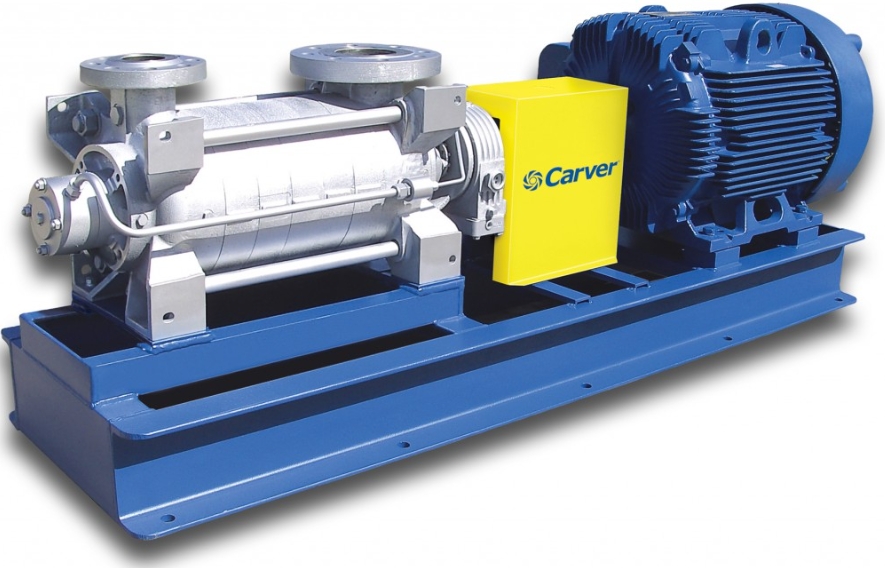The Significance and Basics of Boiler Feed Pumps
The Significance and Basics of Boiler Feed Pumps
Boiler feed pumps play a pivotal role in a wide range of industrial and power - related applications. At their core, they are responsible for supplying water to boilers under high pressure, which is essential for the generation of steam. This steam, in turn, powers turbines in power plants or is used in various industrial processes such as in manufacturing, refineries, and food processing.
How Boiler Feed Pumps Function
Boiler feed pumps typically operate on the principle of centrifugal force. A prime example is a single - stage centrifugal boiler feed pump. Inside the pump, an impeller rotates at high speeds within a casing. As the impeller spins, it draws water in through the inlet. The rapid rotation of the impeller accelerates the water, giving it high kinetic energy. This high - velocity water is then directed towards the volute, a spiral - shaped casing. In the volute, the kinetic energy of the water is gradually converted into pressure energy. For instance, in a small - scale textile factory, a single - stage centrifugal boiler feed pump efficiently supplies water to the boiler that provides steam for fabric processing.
Market Environment
The market for boiler feed pumps is highly dynamic and influenced by several factors. In the power generation sector, the increasing demand for electricity, especially in developing countries like India and parts of Africa, has led to a significant need for new power plants. These plants require reliable and efficient boiler feed pumps. For example, in India, with its ambitious plans to increase its power generation capacity to meet the growing energy needs of its population, numerous new coal - fired and gas - fired power plants are being built. Each of these plants demands multiple high - capacity boiler feed pumps.
Moreover, the push for energy efficiency and environmental sustainability has also shaped the market. There is a growing preference for boiler feed pumps that consume less energy and have a lower environmental impact. Manufacturers are now focusing on developing pumps with advanced technologies such as variable - speed drives to meet these market demands.
Usage Considerations
When using boiler feed pumps, proper priming is crucial. Before starting the pump, it must be filled with water to displace any air. Failure to prime the pump correctly can lead to cavitation, a phenomenon where air bubbles form and collapse within the pump, causing damage to the impeller and reducing the pump's efficiency. For example, in a paper mill, if the boiler feed pump is not primed properly, it can disrupt the steam supply, which is essential for the paper - making process.
Another important aspect is the maintenance of the pump. Regular inspection of the pump's bearings, seals, and impeller is necessary. In a chemical plant, where the water being pumped may contain corrosive substances, the seals need to be checked frequently to prevent leaks. If a leak occurs, it can not only damage the pump but also pose a safety hazard due to the nature of the chemicals in the water.

Get the latest price? We'll respond as soon as possible(within 12 hours)
more products
News
Featured Products
Contact Details




